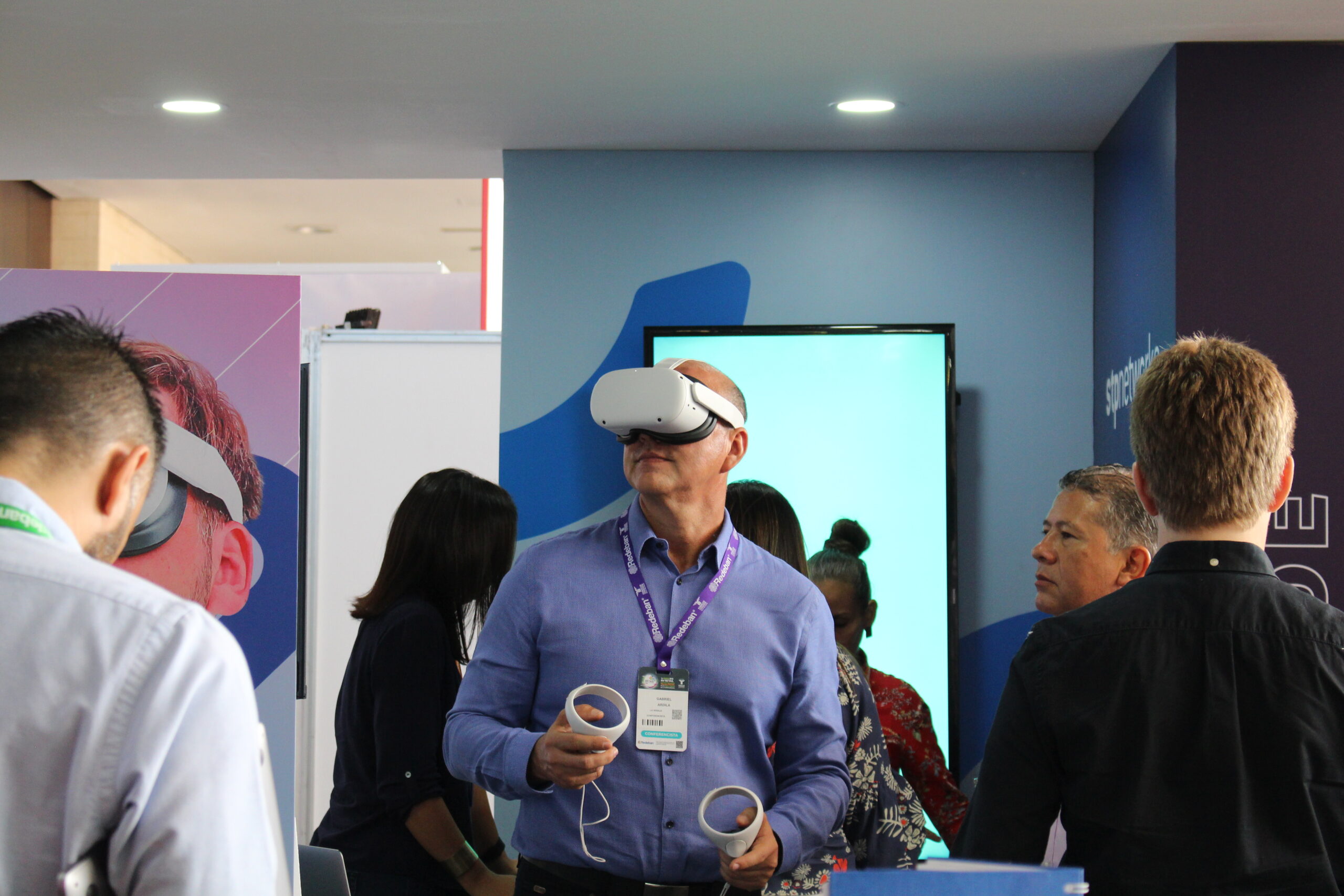“Artificial intelligence will not replace humans, but will enhance our abilities and allow us to tackle complex challenges more effectively,” said Ginni Rometty, former CEO of IBM.
With this quote from one of the most powerful businesswomen in the world, we can think of Artificial Intelligence (AI) as a dynamizer of various economic sectors and industries, and events are no exception. From conferences and conventions to concerts and festivals, the use of technology and AI can revolutionize the way events are planned, organized, and experienced.
We can evaluate the innovative possibilities of using AI in events from two perspectives: event planning, which seeks to simplify processes and streamline decision-making, and attendee experience, which aims to create differentiating experiences.
Event Planning
- Event Management:
Cloud-based event management tools allow organizers to coordinate and control all aspects of the event from anywhere in the world and access attendee information in real-time.
- Data Analysis:
Technology and AI facilitate the collection and analysis of real-time data during events. Organizers can gain valuable insights into audience engagement, attendee preferences, exhibitor performance, and other aspects. With this data, organizers can make more informed decisions for future events, adjust marketing strategies, and maximize return on investment.
- Task Automation:
Use AI to automate repetitive and administrative tasks, such as managing registrations, sending confirmations, scheduling meetings, and generating reports. This will save you time and resources.
- Social Media Analysis:
Natural language processing algorithms can analyze sentiments and opinions expressed on social media related to your event. This will help you monitor public perception, detect potential problems, and proactively respond to situations in real-time.
According to data from the Ministry of Information Technologies and Communications, only 1.8% of companies in Colombia apply AI-based technologies.
Attendee Experience
- Virtual Assistance and Chatbots:
Implement an AI-powered chatbot on your website or messaging apps to provide instant assistance to attendees. Chatbots can answer frequently asked questions, provide information on schedules, locations, and event details, and even assist in the registration process.
- Personalized Recommendations:
AI can collect and analyze data on attendees’ interests and preferences, either through prior registrations or real-time interactions, and use this information to offer personalized recommendations on sessions, presentations, exhibits, or activities that are most relevant to them. This allows them to maximize their time and have a more satisfying and relevant experience.
Additionally, AI can facilitate real-time communication, enabling smoother interactions and providing up-to-date information on schedules, last-minute changes, and locations.
- Immersive Experiences and Extended Reality
Virtual reality (VR) and augmented reality (AR) technology are taking events to a new level of immersion. VR allows attendees to participate in virtual experiences, explore digital spaces, and enjoy immersive presentations. On the other hand, AR enriches the physical experience by overlaying digital information onto the real environment, providing additional information, interactivity, and entertainment.
However, although AI can be deployed in various areas, there are aspects it cannot match, such as human creativity, negotiation skills, and interpersonal connection. These skills are the fundamental human contribution that event professionals bring.
This confirms that AI is more suitable for achieving objectives that require pattern recognition or logic, such as automation, integrations, and forecasting scenarios, driving the evolution of events and providing significant benefits for both organizers and attendees.




